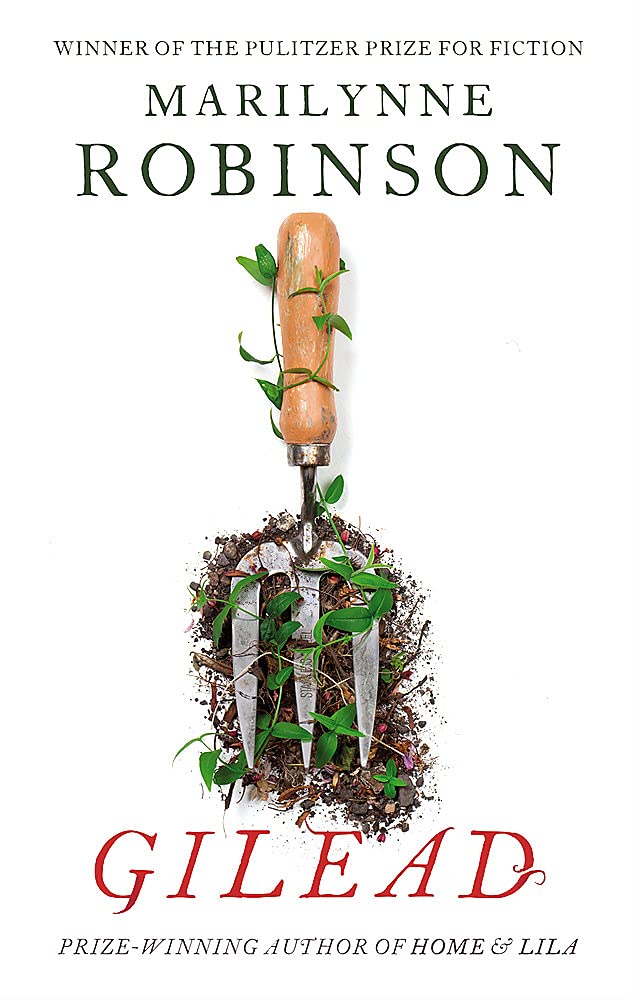From The Reader Bookshelf… Gilead by Marilynne Robinson
As part of our ongoing work around The Reader Bookshelf, we've asked staff to share their thoughts about some of the inspirational texts in the collection.
This week, The Reader's Teaching and Learning Lead, Katie Clark, discusses Gilead by Marilynne Robinson.

Words by Katie Clark
'There's a lot under the surface of life, everyone knows that. A lot of malice and dread and guilt, and so much loneliness, where you wouldn't really expect to find it, either.'
If you have read Gilead before, rest assured, it is one of those rare novels that just keeps getting better with re-reading. If you have never read it, let this be the year – pull a copy off the Reader Bookshelf and spend a few hours walking the earth with the residents of this fictional town in Iowa.
I love it so much that the other day I bought a copy in a charity shop. I already have a copy but whenever I see it in a charity shop I have to bring it home to pass on to a friend. (Also, my copy is signed so I'm embarrassed to say I don't really like lending it out.)
Gilead begins with the Reverend John Ames, towards the end of his life, beginning a letter to his young son. A letter that he intends for him to read when he is a grown man.
'You might have a very different life from mine, and from the life you've had with me, and that would be a wonderful thing, there are many ways to live a good life.'
There is a sort of meandering quality to the passages as one idea triggers a memory, and the memory sparks reflection. But I think that feeling also comes from the way that reading it helps us travel through time over the course of a life and beyond, across generations of the same family, and in some senses, ahead also, to 'the next life' which feels so close to Ames. A 'wide angle' view if you like, taking in a great expanse. But then suddenly it feels like we are zooming right in, to the intricate details of everyday life that can so easily pass us by without consideration. Joy, regret, beauty and sadness are all here. And time. Time to pause for a moment and explore 'under the surface of life'.
As much as Ames begins with the intention of telling his son all about his own life, his story quickly becomes bound up with the people he loves, and we find ourselves drawn into their stories too. Most powerfully (and perhaps unexpectedly) with that of Jack Boughton, his best friend's son, his own Godson, professional black sheep, source of both heart wrenching grief and deep-rooted love.
'This morning I saw Jack Boughton walking up toward the bus stop, looking too thin for his clothes, carrying a suitcase that seemed to weigh almost nothing. Looking a good deal past his youth. Looking like someone you wouldn't much want your daughter to marry. Looking somehow elegant and brave.'
For me, the moments of heart-stopping 'that's so true!' kind of recognition in this book lie in the relationship between these characters. It's so hard to explain because it encompasses all the complex, broken shards of a relationship that has been badly fractured and cannot be simply fixed. But there is startling beauty in the struggle to understand and love someone who is so different from you, even in the moments where it feels easier to simply give up. I think it is one of the best pictures of what it means for us to be human, with all our best intentions and our stumbles.
I could say so much more, but this is probably already a bit too long and I'd much rather you spent your time reading the real deal. And if you enjoy Gilead, the great news is that it is part of a series of four books, all set in the same town and around the same time, but told from different perspectives.
Share
Related Articles

Liverpool ONE unveils book corners in partnership with The Reader to help boost literacy across the city
Liverpool ONE has unveiled a collection of ‘reading corners’ in a bid to help boost literacy levels among local people.…

March’s Choice From The Reader Bookshelf
The Reader Bookshelf is a carefully curated collection of literature for adults and children, exploring a different theme each year, this year’s…

The Storybarn Selects… From The Reader Bookshelf
The Reader Bookshelf is a carefully curated collection of literature for adults and children, exploring a different theme each year, this year’s…


